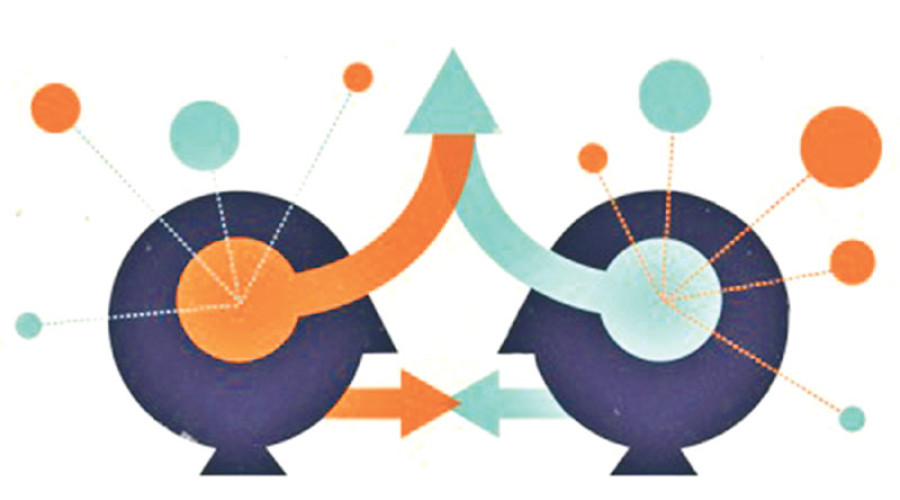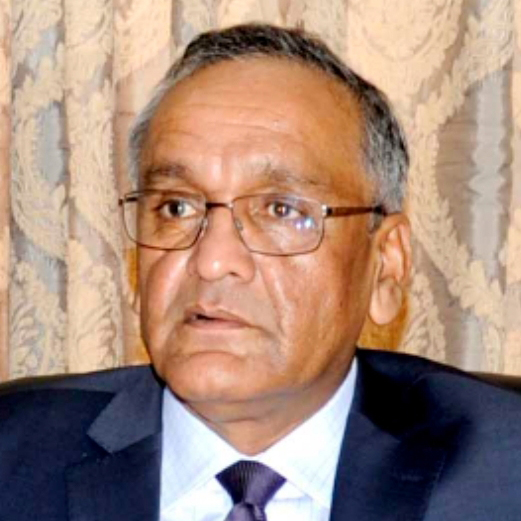Opinion
A missed opportunity
Regional cooperation holds the key to lasting peace and prosperity in South Asia
Mazhar Javed
The 19th Saarc Summit, which was slated to be held five weeks from now in Islamabad, stands postponed. If it had been allowed to proceed as scheduled, it would certainly have moved things in the direction of regional integration in South Asia, which is home to about a quarter of the world’s population. For the host Pakistan, the decision to postpone the Summit was a fait accompli.
The Saarc Charter’s authors who laid the foundation of this regional cooperation project in the 1980s were clearly mindful of South Asia’s ground realities. It was not a well-integrated region then. Unfortunately, it remains the least integrated region in the world even today, with an intra-regional trade of less than 6 percent. Painful as it is, our region also has the dubious distinction of housing the largest chunk of population living below the poverty line in the world. Generations after generations have lived in abject poverty and illiteracy. In fact, the number of people living in poverty in Saarc member countries is much greater than the entire population of Europe.
While we envy the cooperation-driven prosperity enjoyed by the Europeans and the people of the Far East—thanks to the EU and the ASEAN—it is not hard to discern that inadequacy of regional integration and incident of poverty in South Asia are not mere coincidences; they have an unambiguous cause-and-effect relationship. Prudence demands reversing the trends that led to a stunted growth of Saarc as a vehicle of regional cooperation.
Peace, stability, prosperity
Authors of the Saarc Charter were certainly cognisant of these facts when they noted that they are “convinced that regional cooperation is necessary for promoting welfare and improving the quality of life of the people” of the member states. Since the charter was drafted, several successful models of regional cooperation and WTO’s rule-based system, which gained currency from the mid-1990’s, have strengthened the truth in these words. No wonder modern-day social scientists have difficulty finding a country developing impressively as an island of prosperity, in isolation from the region where it is located.
Regional cooperation is all about letting the process of cooperation run parallel to dialogue on bilateral issues and not allowing one to be contingent upon the other. Regional cooperation frameworks cannot be made dependent on bilateral relations that often turn out to be unpredictable.
The history of Saarc tells us that the postponement of similar meetings in the past led only to missed opportunities, making the association lag even further behind. Dialogue and regional cooperation, and not war, offer recipes for resolving regional problems, be they political or economic.
That holds true not only for regional cooperation projects but also for other dialogue-based processes that lead to better understanding and confidence-building, and eventually to a peaceful resolution of longstanding disputes. Resolving such disputes holds the key to sustainable peace, stability and prosperity.
Scourge of terrorism
Pakistan itself has been the worst victim of terrorism, having lost well over 50,000 innocent people, including men, women, children, soldiers, law enforcement personnel and civilians. The country’s countable losses because of terrorism total more than a 100 billion US dollars. The pain of losing over 50,000 dear ones must have played a role in the thinking of the nation’s spokesman, who has always condemned terrorism in all its forms and manifestations, including state terrorism that leads to human rights violations.
It is because of these realities that Pakistan has always sought to facilitate regional cooperation as a means to bringing prosperity to the people of the region, keep the dialogue processes on track to create mutual trust, build confidence and, through these, resolve various outstanding disputes.
Pakistan has always maintained that the only way forward is through dialogue and regional cooperation. In the contemporary world, wars are a recipe for nothing but chaos and disaster. Wars cannot get nations forward; dialogue can. The only wars that can take us forward are those that we wage against terrorism, poverty and illiteracy.
Let’s not forget that South Asia is blessed with enormous resources and potential. For effective utilisation of this natural wealth to uplift the region and usher in an era of durable and lasting peace, we need to accelerate and not block dialogue processes. We need to resolve outstanding issues. And we need to give fresh impetus to regional cooperation, not break the momentum that it has already acquired.
Javed is Ambassador of Pakistan to Nepal




 17.9°C Kathmandu
17.9°C Kathmandu











